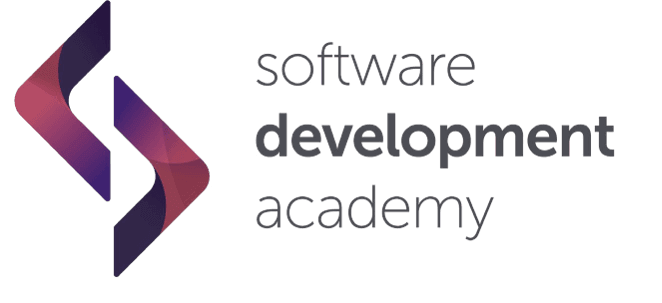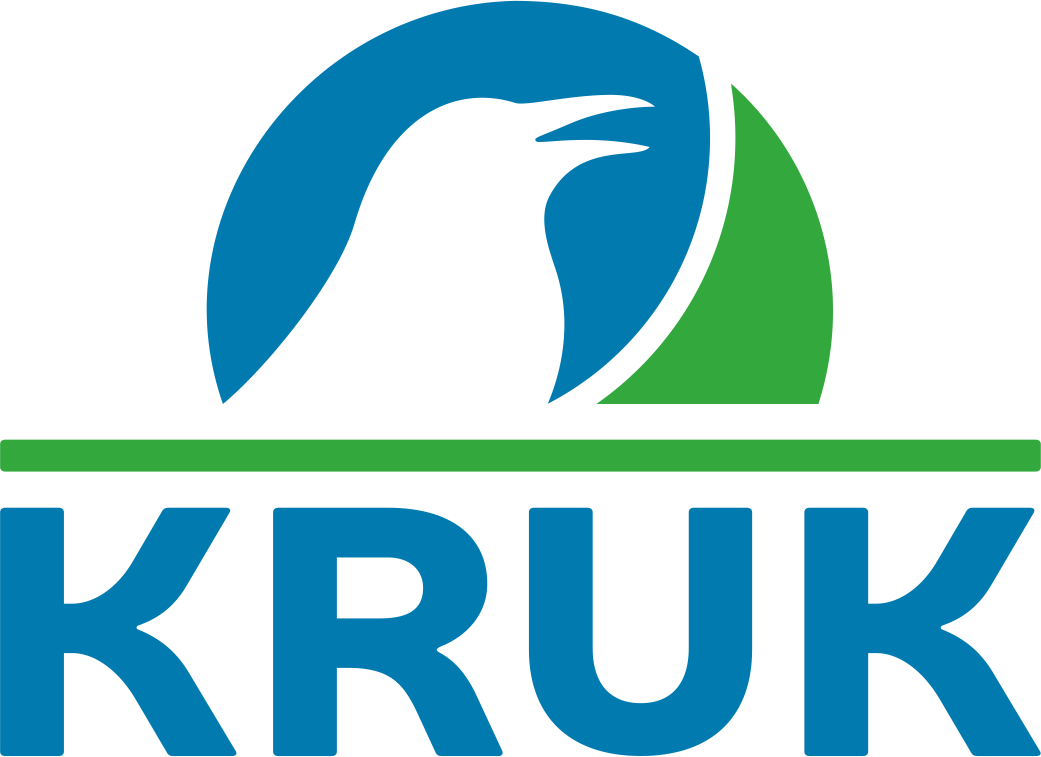Polish IT
community report
2019
TL;DR
In 2018 The editors of Bulldogjob examined and analyzed the results of surveys collected from over 1466 IT experts from all over Poland. During interviews we asked about technology, earnings, work, development, career, and lifestyle. The questionnaire took an average of 28 minutes to complete. Below are few of many results that shed light on the Polish IT industry:
Respondents profile
Demographic profile
Sex
Age
Education
Place of residence
Voivodeship
Knowledge of foreign languages
What foreign languages you know?
Multiple answers possible
Rate the extent to which you know the following foreign languages
(among respondents who know the particular language)
Multiple answers possible
English is the most popular foreign language in the IT community
Almost all respondents know English and at the same time, it is the most popular language known by IT specialists. Most of them (84%) declare their knowledge at a good or very good level. Every fourth respondent knows German, and every tenth knows Russian. Less than 10% of respondents indicated French, Spanish or Italian. Knowledge of these languages usually occurs at a basic level.
FROM AN EXPERT'S PERSPECTIVE

& TRAINING MANAGER

Technologies
Knowledge of technology
Which of the following technologies are you familiar with?
(even at a basic level)
Multiple answers possible
How do you rate your knowledge of the following technologies?
1 means very low, 10 - a very high level.
The graph shows an average
Percentage basis for 1466 respondents
The most popular technology is JavaScript - 68% of respondents declare a basic knowledge of Java
The majority of respondents, two out of three, declare knowledge of JavaScript or Java technology. 60% of respondents know C ++ and more than half of SQL. Other popular technologies are C # (48%), Python (47%) C (45%) and PHP (42%). 30% of respondents declare knowledge of .NET. Less popular technologies are Assembler (17%), Visual Basic (15%) and Delphi / Object Pascal (11%).
The average knowledge of all aforementioned technologies is maintained at 4.6 (on a scale of 1 - 10 where 1 means very low and 10 - very high). The lowest average is the knowledge of the Assembly Language (3.13), while the highest - Java (5.68).
Favorite technologies and their use
Which of the technologies you are familiar with do you use at work daily?
Multiple answers possible
What are your favorite tools / technologies that you use at work?
Multiple answers possible
The most popular technologies are JavaScript (43%) and Java (33%)
JavaScript (43%) and Java (33%) are the most commonly used technologies at work. They are also most often indicated as favorite technologies. The third most commonly used technology is SQL (29%), but only every tenth respondent indicates liking it. C# is used by 18% of respondents and a similar percentage indicates it as a favorite technology. The other most frequently used technologies at work (Python, PHP, .Net, C++, C) are indicated by a similar percentage of respondents as favorites, which shows that IT professionals most often work in technologies they enjoy. The least often indicated as favorite tools / technologies were: Dart, R, Perl, Assembly Language, Objective-C, Delphi / Object Pascal and Visual Basic.
FROM AN EXPERT'S PERSPECTIVE

& eCOMMUNICATION DEPARTMENT MANAGER

Remember that Java is not just a programming language. Thanks to the Java Virtual Machine (JVM), we get a complete, universal platform that we can downright call an ecosystem. Such an approach allows you to create additional languages that can run on the JVM. One example of this is Kotlin, which is quickly becoming a favorite of Android App developers, among others.
Documentation
Does your current project carry out technical documentation?
If so - how would you rate its quality on a scale of 1 - 10?
Is there anything that you feel is missing from it?
Categorized open question
As many as 35% of surveyed IT specialists do not keep documentation in projects
58% of the surveyed programmers answered that technical documentation is being carried out in the current projects they are working on. More than every third respondent said that there is no such documentation. The average assessment of technical documentation in the conducted projects is 5.97 (on a scale of 1 - 10, where 1 means very bad, and 10 - exemplary). Among the missing elements, the most frequently indicated were updates (13%), completeness (7%) and accuracy / detail (7%).
FROM AN EXPERT'S PERSPECTIVE


Work
Working conditions
In what area / areas of IT are you employed?
Multiple answers possible
What is your work experience in the IT industry?
Work experience
On what contract / contracts are you employed?
What are your average monthly earnings after tax?
What are your average monthly net earnings (after tax) by experience?
| EXPERIENCE | MEDIAN EARNINGS |
|---|---|
| Less than 1 year | 1500 - 3000 zł |
| 1 year | 3001 - 4000 zł |
| 2 years | 5001 - 6000 zł |
| 3 years | 5001 - 6000 zł |
| 4 years | 6001 - 7000 zł |
| 5-10 years | 8001 - 9000 zł |
| Over 10 years | 9001 - 10 000 zł |
What are your average monthly net earnings (after tax) by type of contract?
| TYPE OF CONTRACT | MEDIAN EARNINGS |
|---|---|
| Contract of employment | 5001 - 6000 zł |
| Contract of mandate | 3001 - 4000 zł |
| Contract of commission | 3001 - 4000 zł |
| B2B cooperation | 9001 - 10 000 zł |
On average, how many hours does your work take per day?
A contract of employment (Umowa o Pracę) is the most popular form of employment among the IT community - 56% of respondents declare having it
Most respondents (82%) declare to work in the area of programming, and every fifth respondent deals with software architecture. Less frequently indicated areas are testing / QA (13%), project management (10%), infrastructure (DevOps - 10%), database administration (8%), interface design (UX / UI - 7%) and consulting (7%).
On average, the respondents have been working in the IT industry for 4 years and 10 months. At least half of the respondents worked in this industry for 3 years and 2 months.
The most frequently indicated type of contract is a contract of employment (56%). Almost 30% of respondents work on the basis of a B2B cooperation. Only 14% indicated the contract of mandate, and 8% - a contract of commission.
At least half of IT specialists earn between 5001and 6000 PLN net. Looking at experience, the lowest earnings amount to 1,500 - 3,000 PLN net (for people with IT work experience below one year), for people working over 10 years the median is 9001 - 10,000 PLN net.
Comparing the type of contract, the highest earners are those who undertake a B2B cooperation (at least half earn 9001 - 10,000 PLN net). Three out of four respondents declare that their work takes on average 8 hours a day, only every tenth indicates more hours.
FROM AN EXPERT'S PERSPECTIVE


Development at work
What forms of training / education have you been using or use currently?
Multiple answers possible
What areas of IT were covered by these forms of training?
As many as 73% of surveyed specialists , get additional training by means of online courses
IT professionals most often declare (88%) that they learn while doing projects. Over 70% use online courses and over 40% participate in conferences. One in three respondents underwent specialized training or participated in meetups / networking. Only 2% of respondents answered that they do not use any form of further education / training.
In the vast majority of cases (92%), additional courses were related to programming. Almost half were about software architecture, and every fourth - project management. Courses were less frequently used in the field of testing / QA (22%), security (19%), infrastructure (DevOps - 17%) and database administration (17%).
FROM AN EXPERT'S PERSPECTIVE

AT THE FACULTY OF COMPUTER SCIENCE,
ELECTRONICS AND COMMUNICATIONS

Postgraduate studies require commitment for a period of two semesters and involvement in classes on weekends, which requires effort for people in certain age groups. However, for highly motivated people who have a well-defined path of their own professional development and promotion, and want to pursue it, post-graduate studies offer solid specialist knowledge, including practical. These include studies at the AGH University of Science and Technology in Kraków, where classes are planned in a manner which ensures that the participant's benefits in relation to the workload are as large as possible.
Job satisfaction and perfect employer
How satisfied are you with your current job?
The IT community is rather satisfied with its current jobs
IT specialists are rather satisfied with their work (average 6.9 on a scale of 1 - 10, where 1 means very dissatisfied, and 10 - very satisfied). Only every fifth respondent assessed their satisfaction with current work at 5 or lower (DevOps - 17% and database administration - 17%).
What traits define an ideal employer?
For 36% of IT respondents, the most important thing when choosing an employer is development
According to the respondents, an ideal employer should be primarily focused on employee development (36%). For every third programmer, the possibility of getting a good salary is crucial. More than every fifth respondent draws attention to providing a good working atmosphere, and a slightly lower percentage on the appreciation of the employee. For 18% it is important to participate in interesting projects. Other important features of an ideal employer include providing flexible working hours (13%), openness/communication skills (12%), honesty (12%), the possibility of remote work (11%) and interest in new technologies (10%). An ideal employer is also described as competent (9%), forgiving (7%) and gives freedom of action (7%).
If you could choose your ideal employer, which company would it be?
Google came first in the list of the most desired employers in Poland
The most frequently mentioned desired employer (28%), much more frequently mentioned than the others, is Google. 6% of respondents would like to set up their own company and 5% work for Microsoft. The next often mentioned companies are CD Project Red (3%), Apple (3%) and Netguru (3%).
FROM AN EXPERT'S PERSPECTIVE


The results confirm what I believe in the most - work culture. In my opinion, it is the culture of our organization distinguishes us, and has been building our strength consistently for years. We know that this can not be achieved with shortcuts, tricks or investing in marketing.
It is crucial for every person at Netguru to develop and react to changing job trends. One often hears the term "remote-friendly" when it comes to the remote working environment, but we take it a step further and choose "remote-first". As a result, our clients and most of our team can be located anywhere in the world. This opens many options when looking for talents and clients, and our numbers and market confirm this.
What you can not see in the study, and what we're most proud of, is the fact that many of our employees found us and joined us thanks to the recommendation of friends. This is the highest sign of quality.
Change of work and recruitment processes
Recruitment processes
Ideal recruitment process - methods of conducting interviews
Percentage basis for 1466 respondents.
Ideal recruitment process - Selection method for candidates
Multiple answers possible
Ideal recruitment process - people participating in the recruitment
Percentage basis for 1466 respondents.
As many as 87% of the respondents indicated that in an ideal recruitment process, a face-to-face meeting is the best method of conducting interviews- the same number of respondents consider the interview as the best method of selecting candidates
According to respondents in an ideal recruitment process in the IT industry, interviews should be held face-to-face (87%), candidates should be selected on the basis of the interview (75%), and the direct superior (88%) should participate in recruitment process.
Three in four respondents also indicate the presence of future co-workers during the interview, and more than every third would like the participation of an HR department employee.
Among the methods of conducting interviews, a face-to-face meeting is most often preferred. 40% indicated calls via Skype or other online communicators, and every third chose phone calls. Email correspondence was the least favorite (29%).
For 60% of the surveyed IT specialists, the recruitment process should include an independently solved technical task, and half responded that the submitted CV is what counts. A slightly smaller percentage indicated the solving of technical tasks during the recruitment interview.
FROM AN EXPERT'S PERSPECTIVE

& PRODUCT RECRUITMENT


& TEAM LEADER

Are you able to name errors or shortcomings that appear in recruitment processes? Did you encounter any of them?
Percentage basis for 1466 respondents.
The most commonly encountered problem in IT recruitment processes is the recruiters' lack of knowledge in the IT area - as many as 25% of respondents mentioned this issue
Every fourth respondent believes that during recruitment interviews, recruiters often show a lack of knowledge in the IT area or a lack of knowledge about the position for which they are recruiting. Every fifth respondent would expect feedback after such a meeting. Every tenth draws attention to the differences between the expectations included in the offer and those mentioned during the interview and pointless questions from HR. Other shortcomings or issues mentioned are the lack of specific information on salaries (8%), unmatched technical questions (6%) and the arrogant approach of recruiters (5%).
FROM AN EXPERT'S PERSPECTIVE


At Microsoft the job offer reflects the candidate's current skills and professional experience, so we prepare it at the end and not at the beginning of the recruitment process. Thusly, we can avoid any misunderstanding and disappointment on the part of future employees. this is a signal for HR departments in the tech industry, suggesting that if we want to stay at the forefront of IT employers, an invitation to the office should take place at an earlier stage of the recruitment process.
Changing a job
Rate to what extent are you currently interested in a job change?
What could motivate you to change your job?
the average on a scale of 1 - 10
Where would you look for information about a future Employer and job offers?
Multiple answers possible
Half of the respondents is interested in a change of jobs, and one in ten is very much interested
The most frequently mentioned motivations for a job change are the offer of attractive earnings, friendly atmosphere and free work culture as well as flexible working hours. IT specialists would also be convinced by the possibility of promotion and the possibility of professional development. The least-indicated motivators are a contract of mandate or commission. Quotas and gender balance in the company also seem to be of low importance.
The most frequently indicated source of information when researching future Employers and job offers is social media (eg Facebook, LinkedIn) - three out of four respondents have indicated it. Over 70% of respondents look for information on new jobs among friends, and 56% - on job websites (eg GitHub, StackOverflow, Bulldogjob) and in the "Career" tab on employers websites.
LIFESTYLE
How often do you do the following?
Multiple answers possible
The IT community declares an active lifestyle - 72% of respondents practice sports at least once a week
Over 70% of the surveyed IT community declares that they practice sport at least once a week. Over 60% also meet with friends, and almost half meet with family, at least once a week. Nearly 60% of the respondents order food once a week or more often, and 40% eat at restaurants just as often. Every fourth IT specialist goes to the bar at least once a week, but more than half attends a night party less than once a month. Cinema and sports events are chosen by 60% of respondents less often than once a month, of which sports events are completely ignored by a forth of respondents. Developers declare that they read books more often than they play videogames.
Preferences
Your favorite Star Wars character is:
Master Yoda, Obi-Wan Kenobi and Han Solo are the most liked characters in the Star Wars series
Given the aforementioned choices, the surveyed IT specialists will more often choose sandals than kubotas and prefer PlayStation consoles rather than Xbox. The vast majority will pick Back-end (77%) and prefer Elon Musk over Steve Jobs (72% vs. 28%). Among the pop-culture choices, Star Wars dominates over Star Trek (81% vs 19%), and old Star Wars over new ones (77% vs 23%). Batman wins with Superman (75% vs 25%) and Marvel with DC Comics (83% vs. 17%). The IT community will mostly choose Android (78%) and Microsoft (69%).
Methodology
- The study was carried out from August 14 to September 30, 2018. At the time of publication, this is the latest source of data on the IT industry. The respondents were IT specialists, diverse in terms of experience, seniority and demography.
- The recruitment for the study took place through the bulldogjob.pl website and social channels belonging to or cooperating with Bulldogjob.
- The study was completely anonymous - on the basis of statistical studies it is not possible to assign specific answers to individual respondents. However, they had the option of providing their e-mail address voluntarily in order to obtain access to the results of the survey. Show more
- The questionnaire was designed to be easily completable on both desktop devices (laptops, PCs) and mobile devices (smartphones, tablets). The total number of contacts with the questionnaire (with the first question in the questionnaire answered) was 4054, of which 1466 fully completed surveys were collected. The analysis included only respondents who answered all the questions displayed to them and were positively verified in terms of data quality (adequate minimum time to complete the questionnaire, providing substantive answers to open questions).
- the average completion time of the questionnaire was 27 minutes 54 seconds. Interviews with a completion time of less than 5 minutes where excluded from the analysis.
- The survey questionnaire contained a full range of basic types of questions: closed and open questions, questions on a scale and matrix questions. In all questions, an answer was required to proceed to the next question or to successfully complete the survey. This eliminated the possibility of missing data.
- The questionnaire took advantage of the possibility of randomization of answers or questions, where it was justified, so as to minimize the so-called serial position effect or priority bias.
- Not all questions respondents were subjected to all questions - the questionnaire contained filtering questions that limited the group of respondents to those meeting specific criteria. Therefore, on some charts a different basis of interest (N) can be observed.
Substantial contribution









- Zoya

